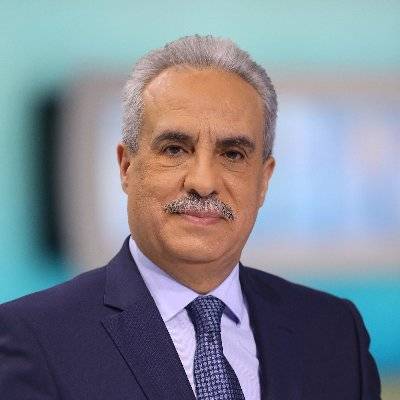When Tunisian President Kais Saied was asked what the alternative is after he said that he rejects the conditions for a $1.9 billion loan from the International Monetary Fund, he replied, “We must rely on ourselves.” The IMF loan would have been used to bridge the gap in the national budget which, if it is allowed to grow, could lead to Tunisia being unable to pay its foreign debts for the first time in its history.
The question was simple, and so was the answer, but the issue isn’t, as the future of the country pretty much depends on it. Tunisia is a country that more than one foreign official has not hesitated to point out could collapse if it does not put its financial house in order as soon as possible.
Saied’s answer put an end to months of ambiguity and hesitation over the extent of Tunisia’s ability to resolve its affairs and sign a deal with the most prominent financial institution in the world, within the terms determined by the institution and based mainly on the need to make several reforms. The reforms in question relate mainly to stopping employment recruitment in the public sector, freezing wages, restructuring some public institutions and the gradual removal of government subsidies on food and fuel. The Tunisian government appointed by Saied actually agreed with the IMF that it would do all of them without having the courage to tell the people.
READ: Kais Saied ‘Tunisia is not for sale,’ rejects IMF loan provisions
According to economists, obtaining an IMF loan is a matter of life or death for Tunisia’s public finances because its budgets for 2022 and 2023 were based upon it being received. Only with the loan in place will the country be able to continue paying its foreign debt instalments in hard currency; they are estimated at about $40 billion, plus accumulated interest. The economists added that even if the state can manage, in one way or another, regarding its domestic debts, especially with national banks, it will still be unable to pay its foreign debts without the IMF loan, simply because it does not have enough foreign currency in its treasury to meet the payment deadlines.
Hence, the president saying, “We must rely on ourselves,” is meaningless, because it will not solve the problem of a country that did not prepare for such a possibility and did not prepare the public for it either. The government was neither open nor transparent about the decision to agree to the IMF conditions and now the president’s rejection of them. It is worth remembering that the Tunisian Minister of the Economy said at the end of last year that the government had no alternative to this loan; that there is no “Plan B” — and he was explicit about this — if the country does not get the loan. He added that Tunisia is pursuing the IMF, not the other way around, and that what is being described as the IMF’s “conditions” are really just reforms that were delayed, allowing the crisis to reach its current level.
No one knows whether Saied will appear soon to explain to the people of Tunisia what he means by relying on “ourselves” other than it being a way to provoke feelings of patriotism and “national sovereignty”, because he himself seems to be counting on the recovery of Tunisian wealth looted and taken abroad during the Ben Ali era. This is despite successive governments failing completely to achieve this (and they may not have even sought to do so seriously in the first place).
It is worth noting that some circles close to Saied have started to use populist rhetoric about the need for Tunisia to wash its hands of the West in general, and its financial institutions in particular, and to turn towards Asia, especially China. They overlook the fact that a move of such importance cannot be done at the flick of a switch, and that Tunisia’s historical links with Europe and the West cannot be broken easily. They also ignore the realities of international, economic, political and security alliances that do not change overnight simply because of politicians’ wishes.
Tunisia is now in a very critical situation, and the hole in its budget may be there for some time. Resorting to what is known as the “Paris Club” to reschedule its debts is a possibility that is closer than ever. Even those most enthusiastic about helping Tunisia in its current crisis, mainly Italy and France, haven’t disguised the fact that they are moving forward in this respect and encouraging others to do so too. This cannot happen without Tunisia first reaching a deal with the IMF, which is waiting for Saied to move forward with what his government promised, sign the agreement and give his personal blessing to the essential reforms. Instead, he has opted to turn the tables without having an alternative on the table, or even partially ready.
READ: Italy calls on IMF to release Tunisia loan to tackle new wave of migrants to Europe
The parties that were urged by Italy to help Tunisia, including the EU, Gulf countries and even Israel, cannot make a move without the green light from the international financial institutions which have reduced their rating of Tunisia because its motives are flawed and it has different priorities. If these countries do provide some assistance, they will only help Tunisia to keep its head above water, not prevent a total collapse. The frightening spectre of total collapse is getting closer with each day that President Kais Saied buries his head in the sand and shouts nothing but empty slogans.
This article first appeared in Arabic in Al-Quds Al-Arabi on 11 April 2023 and has been edited for MEMO.
The views expressed in this article belong to the author and do not necessarily reflect the editorial policy of Middle East Monitor.


![Tunisian President Kais Saied [TUNISIAN PRESIDENCY/Anadolu Agency]](https://i0.wp.com/www.middleeastmonitor.com/wp-content/uploads/2022/09/AA-20220915-28909120-28909118-TUNISIAN_PRESIDENT_KAIS_SAIED.jpg?fit=1174%2C800&ssl=1)









